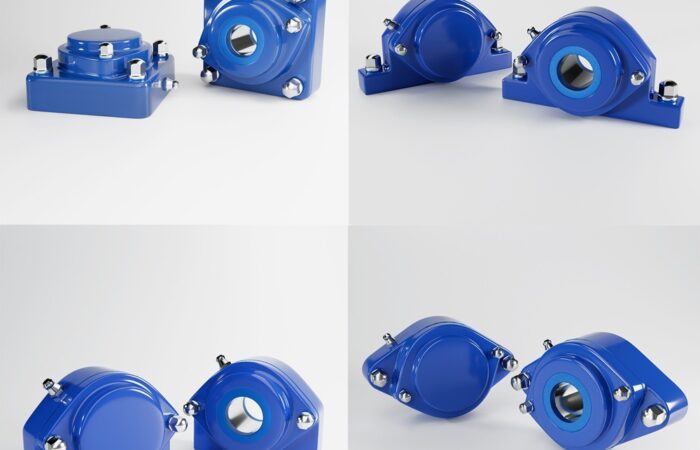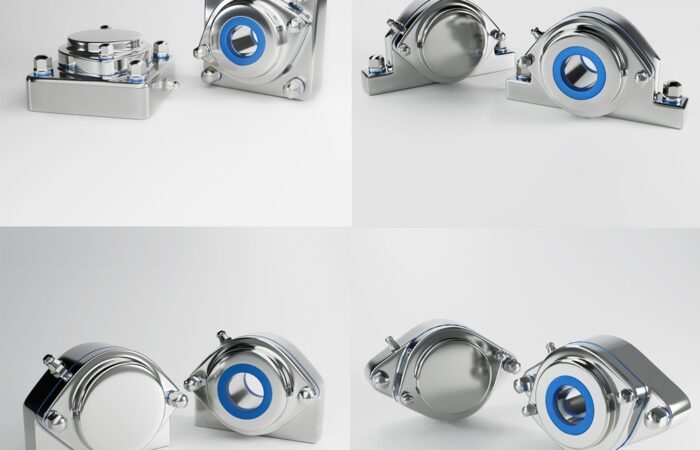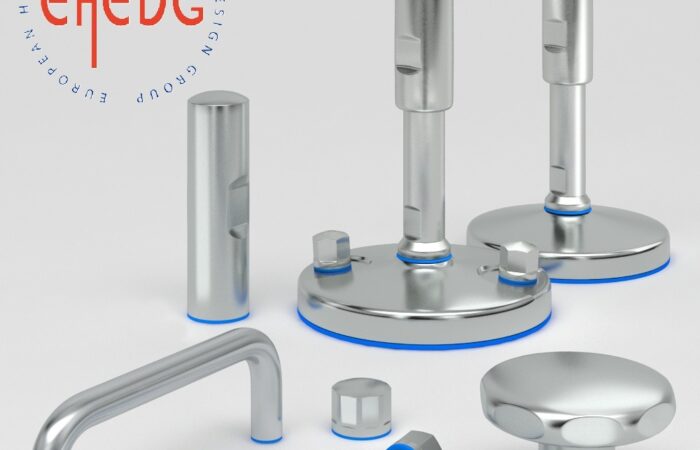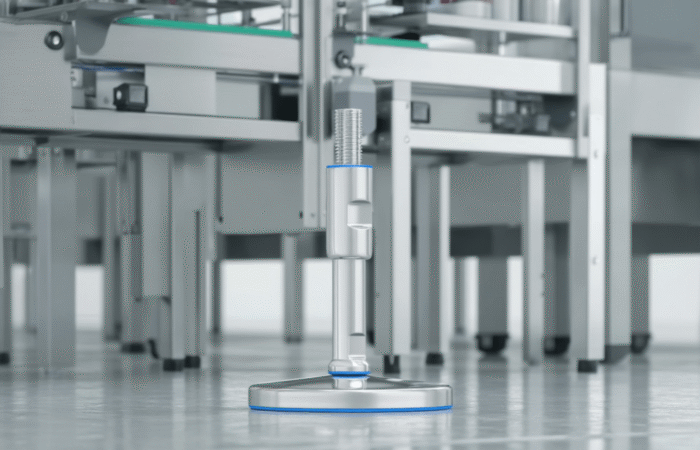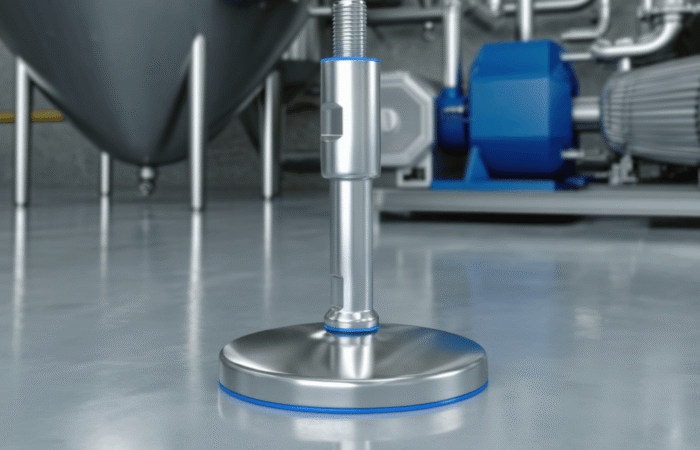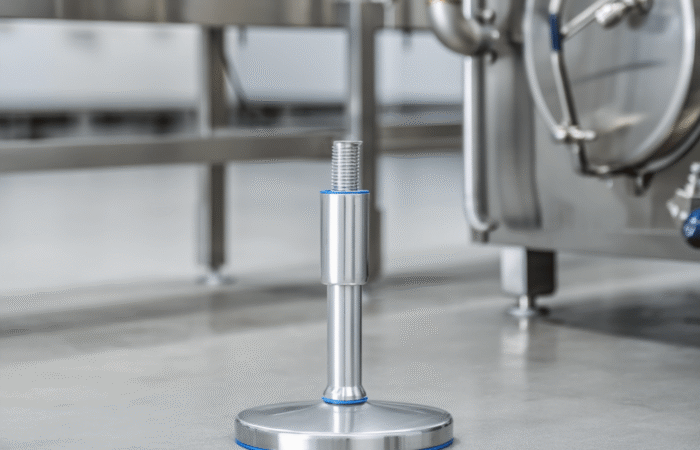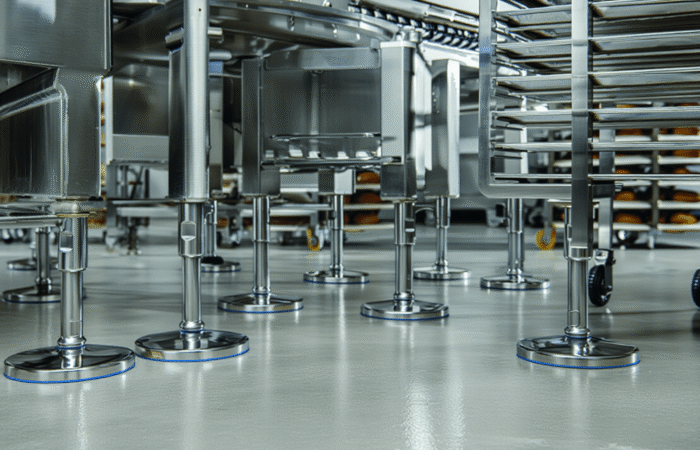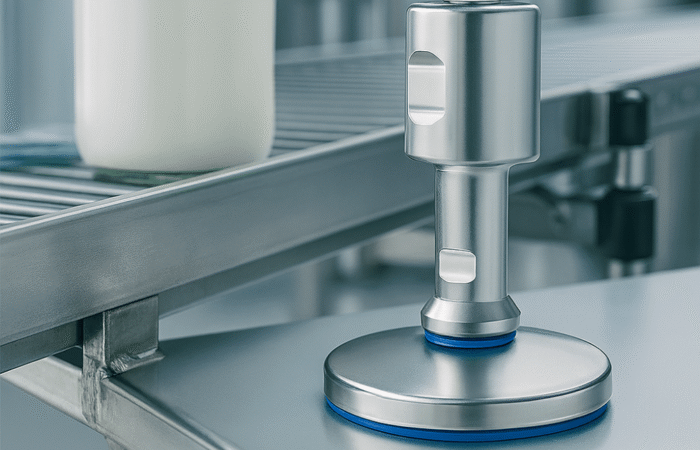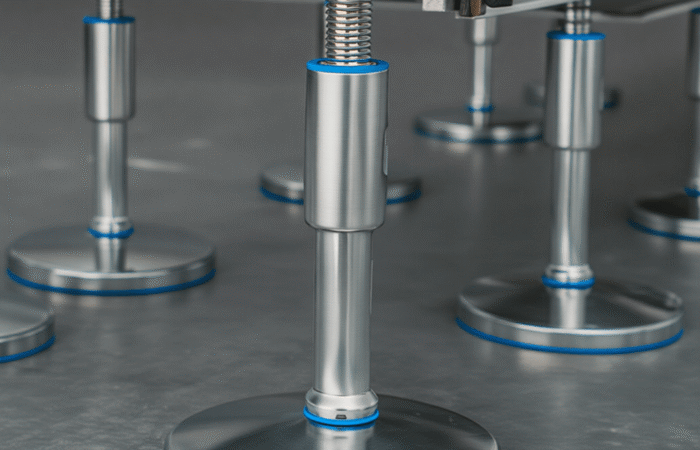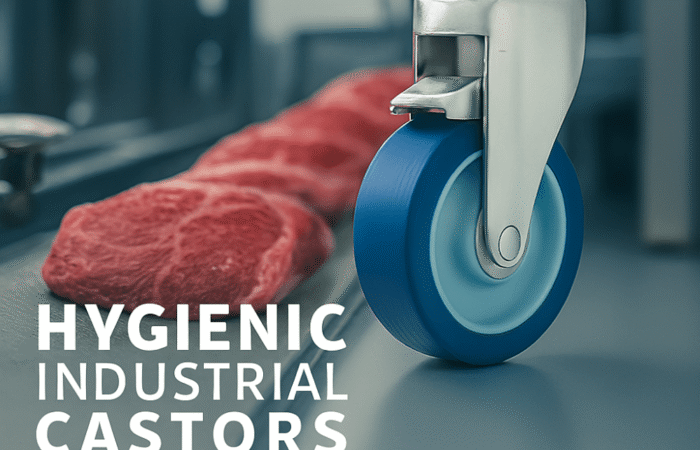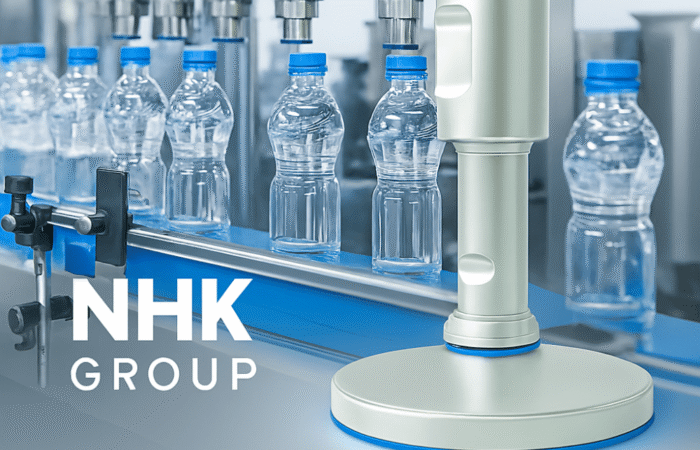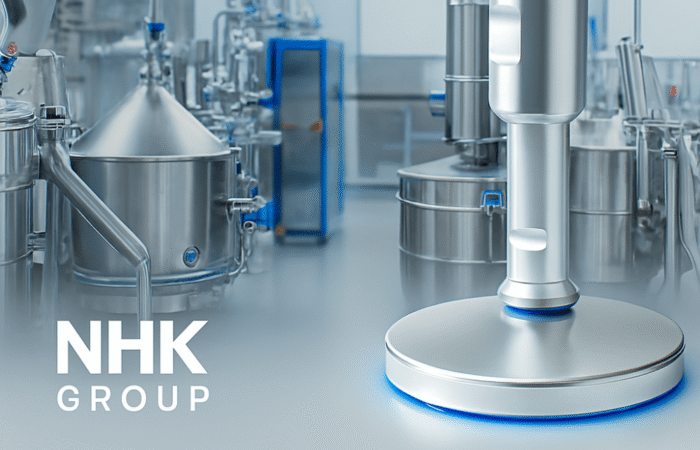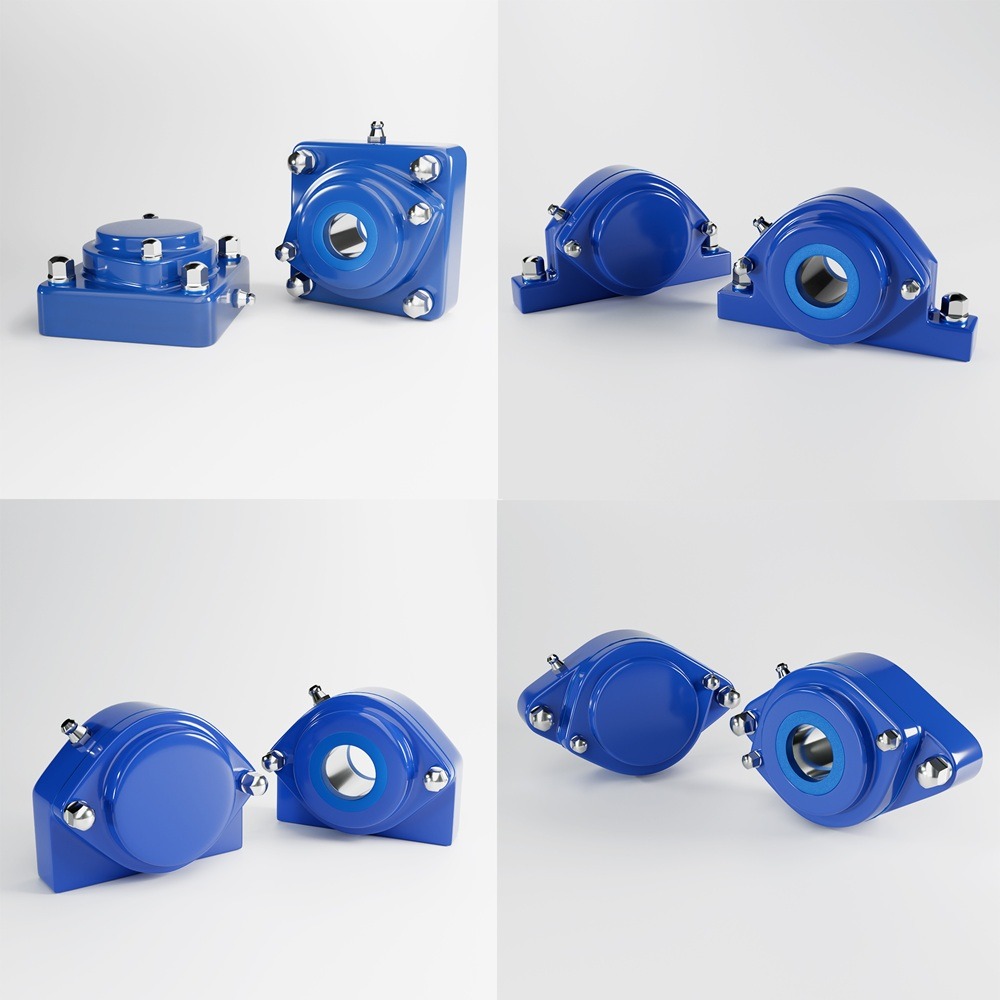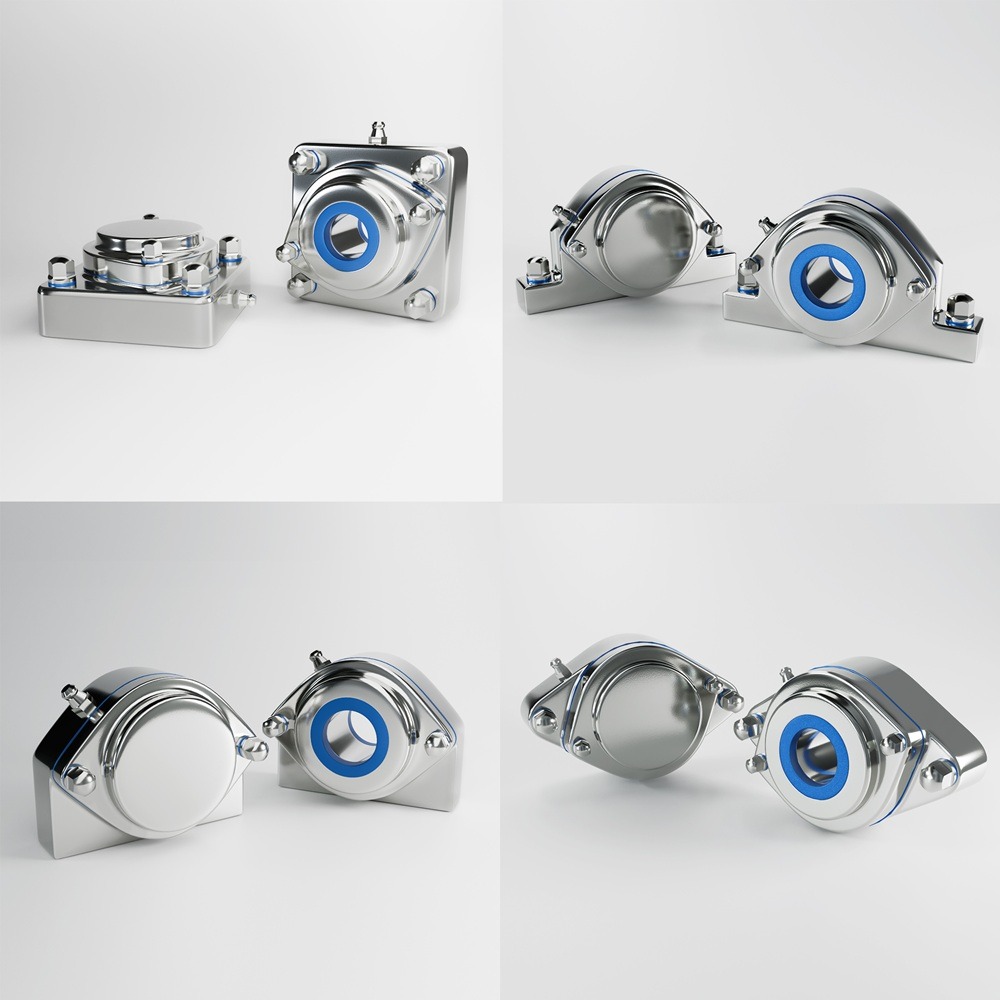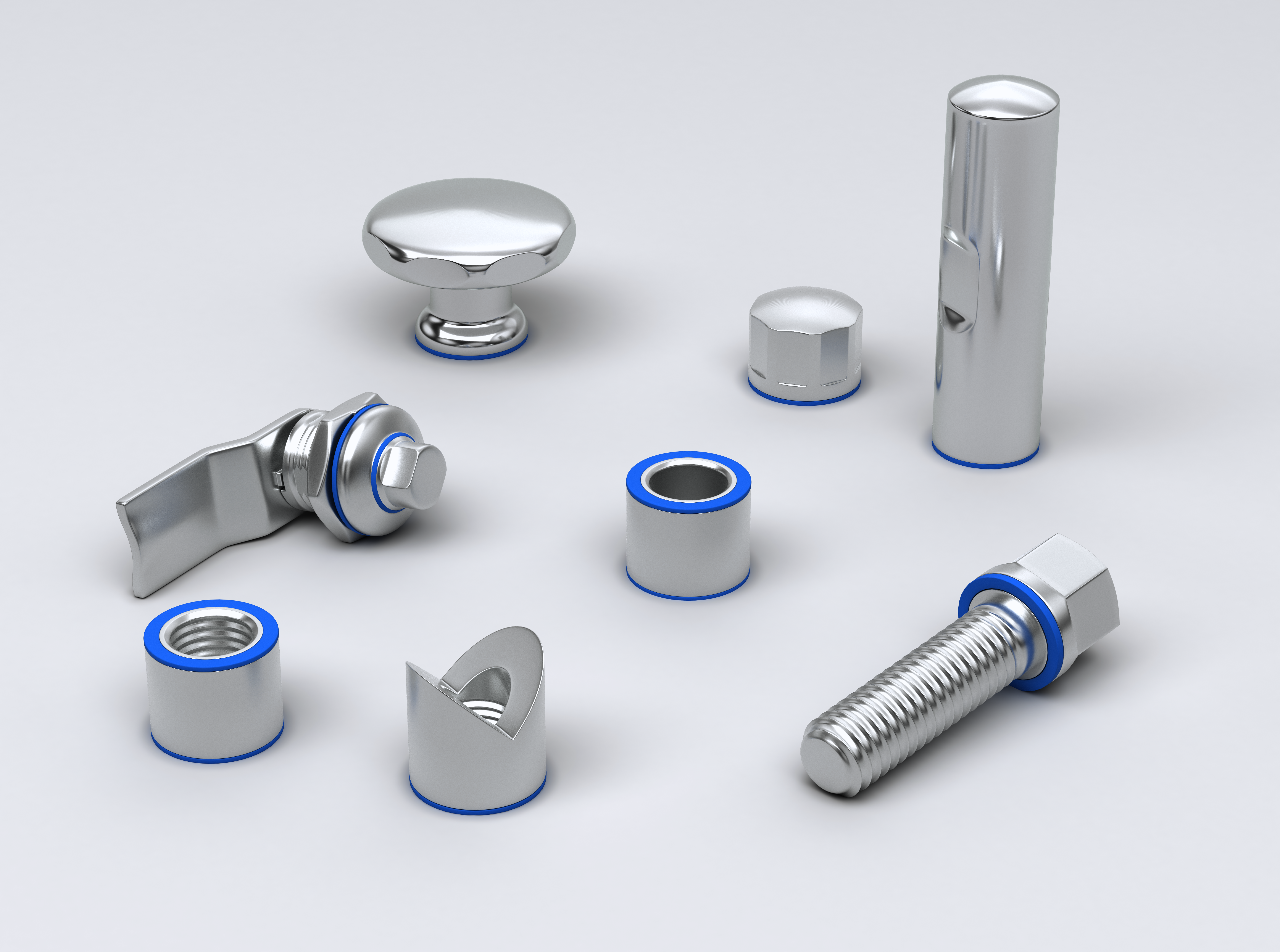
EHEDG Certified Parts: Ensuring Safety Across Industries
These parts, including hygienic nuts, handles, and bolts, are essential in ensuring that machinery and equipment meet the highest standards of hygiene. They play a critical role in sectors like food processing, pharmaceuticals, and healthcare, where contamination risks must be minimized, and hygiene must be maintained at all stages of production. The European Hygienic Engineering and Design Group (EHEDG) sets stringent standards for equipment used in the food processing and related industries. EHEDG certified components meet these high standards for hygiene, ensuring they are easy to clean, resistant to bacterial growth, and safe for environments requiring the highest hygiene standards. This certification process guarantees that parts such as hygienic nuts, handles, and bolts help prevent contamination and facilitate cleaning. Certified components are primarily used in food, pharmaceutical, and cosmetic manufacturing. EHEDG certification ensures that these components support sanitary production environments, reduce microbial growth, and meet all regulatory standards. Several industries rely on EHEDG certified components to maintain the highest hygiene standards during production. These industries trust these parts to keep their equipment clean and their products safe. Here are some industries that benefit from EHEDG certified components: The food processing industry is one of the largest sectors using EHEDG certified components. With contamination risks being high, maintaining a hygienic environment is essential. Hygienic nuts, handles, and bolts prevent food particles, bacteria, and other contaminants from accumulating, ensuring that the machinery stays clean throughout the production process. For example, in dairy processing, where milk is pasteurized and packaged, EHEDG certified parts prevent contamination, which improves food safety. These components minimize contamination risks, improve product safety, and enhance the overall quality of food products. The pharmaceutical industry requires EHEDG certified components to ensure the safety of products. Pharmaceutical production demands strict hygiene, as any contamination could have serious consequences. Hygienic bolts, nuts, and handles help pharmaceutical equipment maintain cleanliness and reduce contamination risks. For instance, hygienic handles ensure safe manual handling of equipment without contaminating the products. EHEDG certified components ensure that cleaning protocols are easy to implement without compromising the integrity of the equipment. The cosmetics and personal care industry also relies on EHEDG certified components to maintain hygiene during production. EHEDG certified handles, nuts, and bolts ensure that the machinery involved in mixing and filling cosmetics stays clean and free from contaminants. These components ensure that products such as lotions, shampoos, and makeup meet high safety standards. EHEDG certification guarantees that the materials used in these parts won’t react with the products being manufactured. This certification ensures product safety and reduces the risk of contamination during production. In the healthcare sector, EHEDG certified components are used in medical devices, hospital equipment, and diagnostic tools. Hygiene is a top priority here because any contamination could lead to health risks. Hygienic nuts, handles, and bolts used in medical equipment ensure it remains clean and easy to sterilize. These components allow for better maintenance of the devices and contribute to a safer environment for patients and healthcare workers. The materials used in EHEDG certified components are crucial for meeting hygiene and durability standards. These components must be durable, resistant to contamination, and easy to clean. Below are the most commonly used materials: Stainless steel is the preferred material for EHEDG certified components due to its excellent corrosion resistance, durability, and easy cleaning properties. Hygienic nuts, handles, and bolts made from stainless steel are ideal for applications in food processing and pharmaceuticals. Stainless steel is non-porous, preventing bacteria from accumulating, and it can withstand harsh cleaning agents and high temperatures. In some cases, food-grade plastics are used for EHEDG certified components. These plastics are resistant to moisture, chemicals, and bacteria, making them suitable for industries that require cleanliness and hygiene. While stainless steel is typically preferred for heavy-duty applications, food-grade plastics are an affordable, reliable option for lighter machinery. Elastomers are used in EHEDG certified components for seals and gaskets. These materials provide a flexible and durable seal, preventing leaks and contamination. FDA-approved elastomers are often used in hygienic nuts and bolts to ensure hygiene is maintained and contamination is minimized in sensitive applications. The development of EHEDG certified components requires extensive knowledge of hygienic engineering, materials science, and manufacturing processes. Companies such as NHK Group have decades of experience in creating hygienic nuts, handles, and bolts that meet the most stringent hygiene standards. Their expertise ensures that these components contribute to safe and efficient production processes. Manufacturers of EHEDG certified components work closely with experts to design parts that meet EHEDG guidelines. They ensure that each component is hygienic, durable, and reliable in various industrial applications. The EHEDG certification is recognized globally as a mark of quality and hygiene. It assures manufacturers that EHEDG certified components, including hygienic nuts, handles, and bolts, meet the highest hygiene standards. This certification provides confidence to companies in the food, pharmaceutical, and healthcare sectors that their equipment is designed to minimize contamination and maintain sanitary conditions. The EHEDG certification is trusted by companies across the globe. It ensures that components are not only hygienic but also durable and reliable, which increases trust in the products and the companies that manufacture them. EHEDG certified components and parts are vital in industries where hygiene, safety, and efficiency are crucial. From hygienic nuts and handles to bolts and seals, these components ensure that equipment stays clean, safe, and compliant with regulatory standards. Whether used in food processing, pharmaceutical manufacturing, or healthcare, EHEDG certified parts help maintain high hygiene standards and reduce contamination risks. With EHEDG certification ensuring the reliability and hygienic design of these components, industries can trust that their equipment will perform optimally and adhere to the strictest hygiene requirements. By investing in EHEDG certified components, companies can improve the safety, quality, and efficiency of their production processes while ensuring compliance with global hygiene standards. Industrial machinery requires precision-engineered components that meet exacting standards for durability, safety, and performance. This comprehensive guide explores the essential machinery parts that drive modern manufacturing across food processing, packaging, and chemical industries. Understanding the difference between Pillow Blocks and Direct Mount Bearings is crucial for engineers and procurement professionals seeking to optimize equipment longevity. Pillow block bearings, also known as plummer blocks, are self-aligning bearing units that simplify installation and significantly reduce maintenance costs. These versatile components mount on machine frames and support rotating shafts with exceptional precision, ensuring smooth operation in demanding industrial environments. Flange bearing units offer a more compact alternative, featuring integrated flanges that enable direct mounting to flat surfaces without additional hardware. Both designs come in various materials, including stainless steel grades optimized for corrosive environments and food-grade applications where hygiene is paramount. The importance of material selection cannot be overstated in machinery design. 440 Stainless Steel and 420 grades offer distinctly different properties suited to specific applications and environmental conditions. The 440 stainless steel variant provides superior hardness and exceptional edge retention, making it ideal for cutting tools and high-wear applications requiring maximum durability. Meanwhile, 420 stainless steel offers better corrosion resistance and is preferred in food processing equipment where chemical exposure is common. Hygienic stainless steel components have become essential in food machinery, meeting EHEDG standards and facilitating rapid equipment cleaning required in modern food production facilities. Understanding ingress protection ratings is equally critical for machinery durability and operational reliability. IP67 rating ensures protection against dust and temporary water immersion, while IP68 rating provides complete dust protection and sustained water immersion capabilities for submerged operations. The IP69K standard represents the highest protection level, specifically designed for high-pressure wash-down environments found in industrial food processing facilities. These ratings define how effectively machinery components withstand environmental challenges and maintain performance. Modern industrial facilities increasingly demand equipment that combines high performance with ease of maintenance and sanitation. The choice between different bearing types depends on operational requirements, environmental conditions, and budget constraints. Proper component selection ensures extended equipment lifespan, reduced downtime, and improved operational efficiency.In industries where cleanliness, safety, and operational efficiency are paramount, EHEDG certified components and parts stand at the forefront of equipment design.
What Are EHEDG Certified Components?
Industries Benefiting from EHEDG Certified Components
1. Food Processing Industry
2. Pharmaceutical Industry
3. Cosmetics and Personal Care Industry
4. Healthcare and Medical Equipment
Materials Used in EHEDG Certified Components
1. Stainless Steel
2. Food-Grade Plastics
3. Elastomers
Expertise and Experience Behind EHEDG Certified Components
Trust and Reliability of EHEDG Certification
Conclusion


Contact
Understanding Machinery Components & Protection Standards
